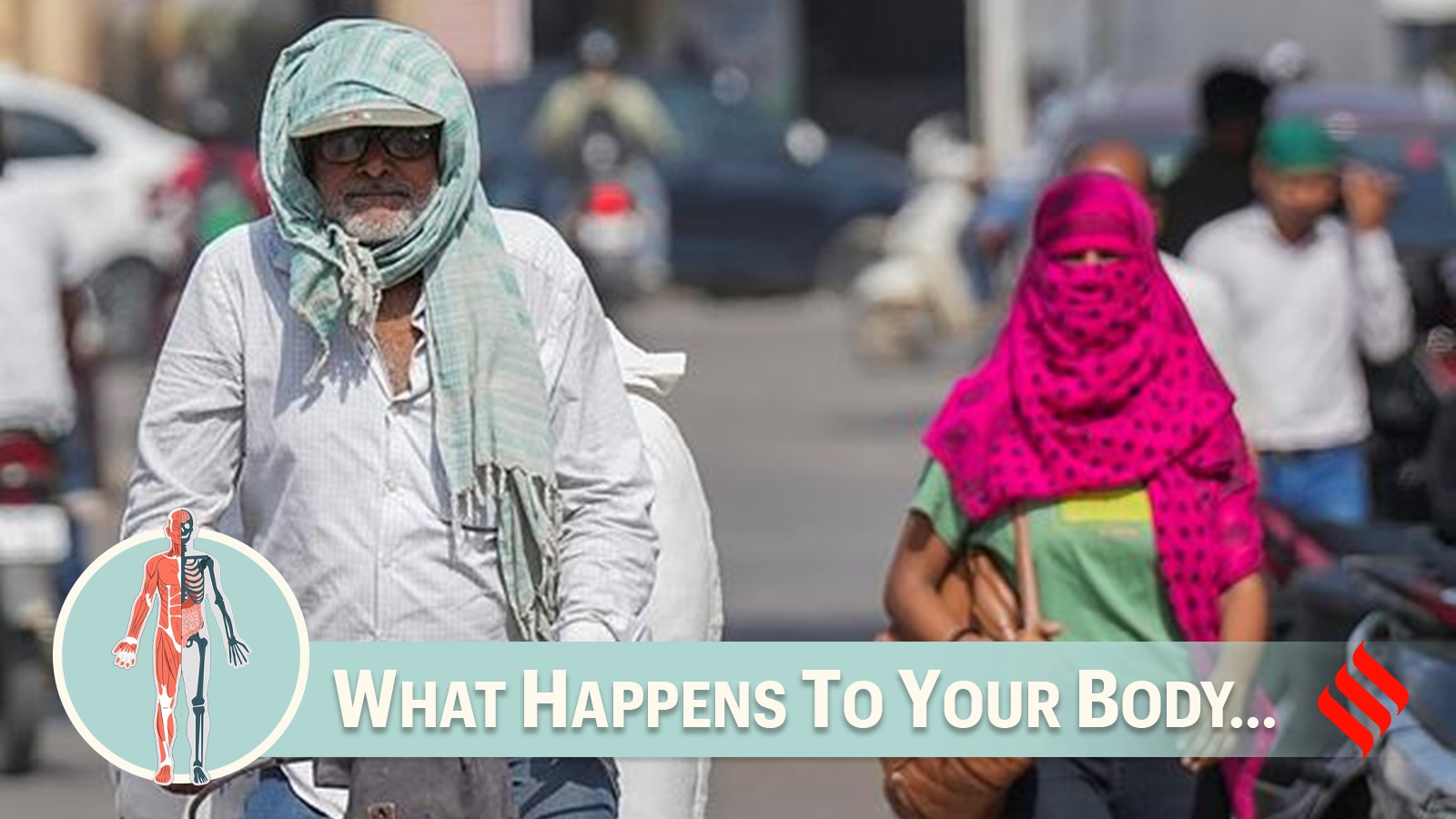Fitness
Here’s what happens to your body when the temperature rises above 50 degrees Celsius

As India continues to grapple with the escalating effects of climate change, extreme heat waves are becoming increasingly frequent and severe.
When temperatures soar beyond the 50-degree Celsius mark, the human body faces an unprecedented challenge. This intense heat exposure triggers a complex series of physiological responses, pushing the body’s regulatory mechanisms to their limits and unleashing a cascade of potentially life-threatening consequences.
So, what exactly happens to your body when the temperature rises above 50 degrees?
Dr Palleti Siva Karthik Reddy, MBBS, MD, General Medicine, consultant physician, tells indianexpress.com, “When the temperature exceeds 50 degrees Celsius, the human body faces extreme stress. The body’s core temperature normally hovers around 37 degrees Celsius, and it works hard to maintain this balance through sweating and blood vessel dilation. However, at temperatures above 50 degrees, these mechanisms can get overwhelmed.
Initially, she states, the body responds by sweating profusely to cool down. However, in such extreme heat, sweat evaporates too quickly, or the air may be too humid for evaporation to be effective. “Blood vessels near the skin expand to help dissipate heat. But excessive dilation can lead to a drop in blood pressure and reduced blood flow to vital organs,” says Dr Reddy.
She continues, “When the body can no longer cool itself, heat stress sets in, characterised by light-headedness, fatigue, and muscle cramps. This can quickly progress to heat stroke, which includes symptoms like confusion, a rapid heart rate, and no sweating. Heat stroke is a medical emergency that can damage the brain, heart, kidneys, and muscles.”
Significant health risks and rapid onset
The health risks associated with prolonged exposure to such high temperatures are severe and can manifest rapidly, Dr Reddy remarks. These are:
Heat Exhaustion and Heat Stroke: These conditions can develop within hours. Heat stroke can lead to organ failure and death if not treated promptly.


Dehydration: Extreme sweating leads to rapid fluid loss, causing dehydration. Dehydration can result in kidney failure and exacerbate cardiovascular problems.
Cardiovascular Strain: The heart has to work harder to pump blood through dilated vessels, increasing the risk of heart attacks and other cardiovascular events, especially in the elderly and those with preexisting conditions.
Neurological Impact: High temperatures can cause proteins to denature, affecting the nervous system. Symptoms include seizures, confusion, and loss of consciousness.
Protective measures against heat-related illnesses when temperatures exceed 50 degrees Celsius
To protect yourself in environments where temperatures exceed 50 degrees Celsius, you should take these steps recommended by Dr Reddy:
Stay Hydrated: Drink plenty of water and avoid caffeine and alcohol, which can dehydrate the body.
Seek Shade and Cool Environments: Avoid direct sunlight and stay in air-conditioned or well-ventilated areas as much as possible.
Wear Appropriate Clothing: Light, loose-fitting, and light-coloured clothing helps reflect heat and allows sweat to evaporate
Limit Physical Activity: Reduce strenuous activities, especially during peak heat hours.
Use Cooling Methods: Utilise fans, take cool showers, and apply ice packs to key areas like the neck, wrists, and armpits to help cool the body.
Long-term health consequences of exposure to temperatures above 50 degrees Celsius
Long-term exposure to such extreme heat can have chronic effects on health, says Dr Reddy. “Repeated dehydration episodes can lead to kidney damage over time. Chronic exposure to such high temperatures strains the heart and can lead to persistent cardiovascular problems. Prolonged exposure can also cause lasting damage to the nervous system, potentially resulting in cognitive decline and other neurological issues.”
Managing these long-term health consequences involves regular medical check-ups, maintaining hydration, and ensuring a cool living environment, she asserts. “Preventive measures like adapting to heat gradually and implementing lifestyle changes to manage health conditions are crucial.”



)






